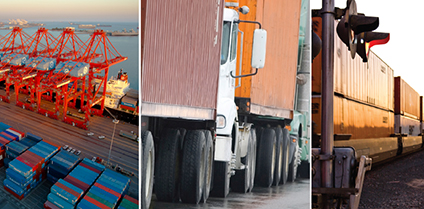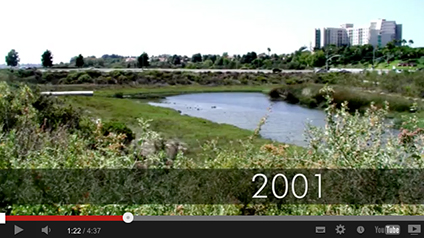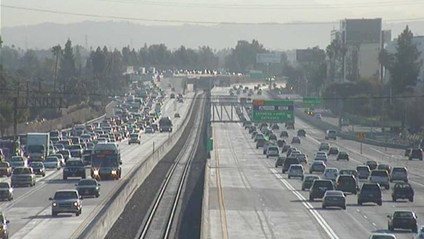During Mobility 21’s annual advocacy trip to Washington, D.C. next week, leaders will advocate for increased federal investment in goods movement infrastructure.
Mobility 21 Urges Congress to
Invest in America’s Trade Gateway
During Mobility 21’s annual advocacy trip to Washington, D.C. next week, Southern California’s leading transportation and business stakeholders will join together to advocate for increased federal funding for transportation and innovative tools to maximize local investment in infrastructure.
Federal funding to improve and maintain Southern California’s aging goods movement infrastructure will take top billing during the advocacy trip. More than 43 percent of the nation’s containerized imports enter the Ports of Long Beach, Los Angeles, Hueneme and San Diego — creating jobs, income and tax revenue in all 50 states. Given Southern California’s role as America’s trade gateway, Mobility 21 members will advocate for federal investment to improve the flow of trade to the rest of the nation, as well as to mitigate the congestion and air quality issues that are caused by the movement of goods through Southern California’s ports, highways and railways.
“The inclusion of a national freight movement policy in the federal transportation bill, MAP-21, was an important stepping-stone for transportation,” said Anne Mayer, Executive Director of the Riverside County Transportation Commission and Mobility 21 Chair. “Now we’re urging Congress to take a serious look at how to fund the nation’s goods movement infrastructure in Southern California given its vital role in our national economy.”
In addition to advocating for federal transportation funding, trip participants will be armed with suggestions to stretch local tax dollars further through innovative financing tools, reduced red tape and non-traditional project delivery methods including public-private partnerships and design-build.
“We need greater flexibility from the federal government to maximize the substantial transportation investment Southern Californians make at the local level through sales tax measures,” said Art Leahy, Los Angeles County Metropolitan Transportation Authority CEO and Mobility 21 Board Member. “The creation of America Fast Forward bonds, coupled with the ability to develop local hiring initiatives, will help us deliver transportation projects years ahead of schedule and create jobs locally much sooner.”
Click here to view Mobility 21’s legislative briefing materials online. Check out next month’s e-newsletter for a wrap-up of the advocacy trip. Follow Mobility 21 on Twitter and Facebook for updates and photos from the trip.

OCTA CEO Will Kempton’s career has spanned nearly 40 years in transportation, public service and government affairs.
OCTA’s Will Kempton Makes
His Mark on Transportation
Mobility 21 Board Member Will Kempton is retiring today from the Orange County Transportation Authority (OCTA) after three and a half years at the helm as CEO. After retirement, Kempton will head to Sacramento to lead the nonprofit organization Transportation California. This month, we asked some of Kempton’s closest colleagues and family members to reflect on the mark he leaves on transportation.
What is Will Kempton’s legacy to transportation in California?
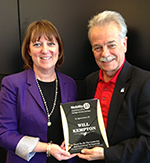 “As one of the founders of the Self-Help County model, Will’s efforts helped create the successful programs we see today.”
“As one of the founders of the Self-Help County model, Will’s efforts helped create the successful programs we see today.”
— Anne Mayer, Executive Director, Riverside County Transportation Commission and Chair, Mobility 21
———————————––
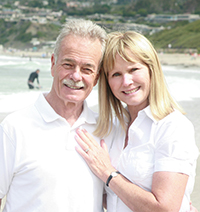 “Aside from any transportation improvements he has worked on for the people of California, I personally believe his biggest legacy was how he honestly cared for his employees and how that inspired and motivated them. I speak from experience myself with managers throughout my career when I state that I know how much that means to employees. I always admired this quality in my husband.
“Aside from any transportation improvements he has worked on for the people of California, I personally believe his biggest legacy was how he honestly cared for his employees and how that inspired and motivated them. I speak from experience myself with managers throughout my career when I state that I know how much that means to employees. I always admired this quality in my husband.
— Beverley Kempton, Will’s wife
———————————––
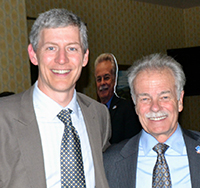 “Will’s legacy for transportation in California absolutely includes his commitment to partnerships throughout industry and transportation stakeholders. His desire to educate young people and promote transportation will also be something his legacy will include.”
“Will’s legacy for transportation in California absolutely includes his commitment to partnerships throughout industry and transportation stakeholders. His desire to educate young people and promote transportation will also be something his legacy will include.”
— Malcolm Dougherty, Director, Caltrans
———————————––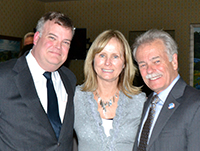
“Simply put, I think he has done more than any single individual to improve the state of transportation infrastructure in California.”
— Mark Kempton, Project Director, Skanska and Will’s son
———————————––
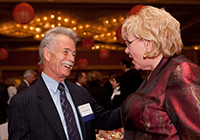 “Will’s legacy is just beginning and his impact of so many decades of good work in transportation will be felt for generations to come. As California’s chief mobility leader, Will led Caltrans for its most productive years, including passage of billions of dollars worth of enormously impactful infrastructure bonds, approved by voters, which took shovel-ready state and local projects off their shelves and into implementation and development. He led the state on every project and policy important to mobility: from development of a new Bay Bridge for Oakland/San Francisco, to high speed rail, to public-private partnerships, to design-build, to efficiency in processes and project delivery. He is a well-respected resource for “both sides of the political aisle” earning the respect of every administration regardless of political party. Will Kempton has left a tremendous legacy for Orange County as well. His dedication to jobs creation and advancing the region’s infrastructure has made the county one of the best places to live and work. More than 12,000 jobs have been created or sustained under Will’s leadership since 2009, with 3,227 of those jobs created just last year. Also during that time, $179.3 million in public funds from Measure M2 and other state and federal dollars were invested in badly needed infrastructure projects throughout the county. By getting people back to work, keeping our roads open and goods moving, and ensuring adequate funding for future projects, Will’s impact is seen throughout every corner of Orange County. Finally, he was instrumental in an important process streamlining provision—Breaking Down Barriers—in the most recent federal transportation bill, MAP-21, which will have major cost-savings benefits for every transportation agency in the nation. His legacy is not over, however, as he will continue his good work under Transportation California in public education and ultimately new revenue for projects to keep California moving people and goods effectively and efficiently.”
“Will’s legacy is just beginning and his impact of so many decades of good work in transportation will be felt for generations to come. As California’s chief mobility leader, Will led Caltrans for its most productive years, including passage of billions of dollars worth of enormously impactful infrastructure bonds, approved by voters, which took shovel-ready state and local projects off their shelves and into implementation and development. He led the state on every project and policy important to mobility: from development of a new Bay Bridge for Oakland/San Francisco, to high speed rail, to public-private partnerships, to design-build, to efficiency in processes and project delivery. He is a well-respected resource for “both sides of the political aisle” earning the respect of every administration regardless of political party. Will Kempton has left a tremendous legacy for Orange County as well. His dedication to jobs creation and advancing the region’s infrastructure has made the county one of the best places to live and work. More than 12,000 jobs have been created or sustained under Will’s leadership since 2009, with 3,227 of those jobs created just last year. Also during that time, $179.3 million in public funds from Measure M2 and other state and federal dollars were invested in badly needed infrastructure projects throughout the county. By getting people back to work, keeping our roads open and goods moving, and ensuring adequate funding for future projects, Will’s impact is seen throughout every corner of Orange County. Finally, he was instrumental in an important process streamlining provision—Breaking Down Barriers—in the most recent federal transportation bill, MAP-21, which will have major cost-savings benefits for every transportation agency in the nation. His legacy is not over, however, as he will continue his good work under Transportation California in public education and ultimately new revenue for projects to keep California moving people and goods effectively and efficiently.”
— Lucy Dunn, President & CEO, Orange County Business Council, Board Member, Mobility 21 and Commissioner, California Transportation Commission
———————————––
“His ability and tenacity moving projects forward. During Will’s time as Director of Caltrans, we were able to deliver 99 percent of the projects by milestone over his tenure. He had the department thinking about making sure they upheld their commitments.”
— Randy Iwasaki, Executive Director, Contra Costa Transportation Authority
———————————––
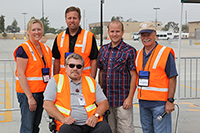 “I think that over his 30 plus years as a transportation professional, Will leaves California with a policy of dealing better with ever-shrinking funds and ever-increasing demands. At OCTA he was able to manage through a recession that could have cost us much more transportation service, and left us with a deficit we could not overcome.
“I think that over his 30 plus years as a transportation professional, Will leaves California with a policy of dealing better with ever-shrinking funds and ever-increasing demands. At OCTA he was able to manage through a recession that could have cost us much more transportation service, and left us with a deficit we could not overcome.
Will also recognized that if we can reduce the time it takes to process federal grants, we can accelerate future job creation. Working with the Board he was instrumental in obtaining the inclusion in MAP-21 of provisions to break down barriers and streamline project delivery.”
— Greg Winterbottom, Chair, OCTA
———————————––
“Whether or not they realize it, the positive impact that Will has had on California’s transportation network touches every resident and business in the state. He is the consummate transportation professional with a national reputation of the highest order.”
— Peter Buffa, Advisor, Barclays Capital Inc. and Former Director, OCTA
—————————————
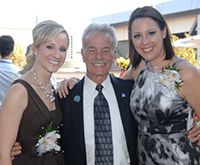 “Will is a true statesman. He strives to bring all stakeholders to the table to find equitable solutions to challenging issues. He displayed great leadership during his tenure at Caltrans in leading the state’s efforts to allocate ARRA funding, and also in negotiating the special legislation that made design-build and public-private-partnerships possible on the state highway system. Once Will joined OCTA I was grateful for this same approach to consensus-building. Will’s leadership as our chairman in 2011 really elevated Mobility 21’s profile throughout the state.”
“Will is a true statesman. He strives to bring all stakeholders to the table to find equitable solutions to challenging issues. He displayed great leadership during his tenure at Caltrans in leading the state’s efforts to allocate ARRA funding, and also in negotiating the special legislation that made design-build and public-private-partnerships possible on the state highway system. Once Will joined OCTA I was grateful for this same approach to consensus-building. Will’s leadership as our chairman in 2011 really elevated Mobility 21’s profile throughout the state.”
— Marnie O’Brien Primmer, Executive Director, Mobility 21
—————————————
“Very few, if any, individuals in transportation have been able to “bridge” the very different and senior management roles in a single career in both the public and private sector as has our friend and colleague Will Kempton!”
— D.J. Smith, Partner, California Strategies
—————————————
What is your fondest memory of working with Will Kempton?
“My favorite Kempton moments will no doubt be the time we’ve spent together playing golf. The fact that someone his size can drive the ball that straight and that far time after time is a joy to watch.”
— Peter Buffa, Advisor, Barclays Capital Inc. and Former Director, OCTA
—————————————
“One time, someone told me about an issue that they were afraid to discuss with Will. He can get very upset at times and his anger can be directed at the messenger. I walked into his office, closed the door and asked him to make a promise not to rush out of the office and get mad at the employee. I said that employees won’t talk to us if he gets angry at them for coming to talk with us about mistakes. Will is a man of his word. “He was sitting at his desk and I was standing by the door. He agreed and I told him about the situation. He got very angry and told me to get out of his way. He was going to find the employee. I said no way and said he needed to cool down. He was still angry and warned me that he was on the wrestling team in High School. I said it would look pretty funny for the executive assistants to hear a commotion coming from his office, walk in to check and see us rolling on the ground wrestling because I was not going to let him out of his office until he cooled off. He thought about it for a few seconds and started to laugh. He said it probably would be funny to see us wrestling on the ground.”
— Randy Iwasaki, Executive Director, Contra Costa Transportation Authority
—————————————
“Will’s passion for success and attention to detail has provided many memorable moments throughout our professional relationship. Everyone who has worked with Will has a story about his drive for perfection within the organization he is leading. I look forward to working with Will in the future as he continues to be a champion in the transportation community.”
— Malcolm Dougherty, Director, Caltrans
—————————————
“Lunch at CPK …. where I would always try not to order dessert, but Will would force me to order the Key Lime pie, suggesting he would not eat any of the dessert. Each time I put my fork in the dessert, I would find that there would be less pie and topping for me.”
— Greg Winterbottom, Chair, OCTA
—————————————
“Intense work conversation one minute and the next he’s talking about shoes.”
— Anne Mayer, Executive Director, Riverside County Transportation Commission and Chair, Mobility 21
—————————————
“My fondest memory of Will while he was working in Southern California was how he interacted with his staff at the OCTA office, especially with his Administrative Assistant Elizabeth Wade. I loved going into his office or attending events with his staff for it felt so much like home and was always actually very entertaining. I enjoyed his staff tremendously and will miss the visits to the OCTA office.”
—Beverley Kempton
—————————————
“Serious: A few years back, when OCTA was strapped with budget restraints and faced with laying off a number of bus drivers and buses to cut costs, an excellent public-private partnership was born between OCTA and the Disneyland Resort. Disneyland President George Kalogridis came to Will with a need for more guest transportation, and with that the OCTA buses and drivers intended for layoff were moved to the resort. This innovative solution is a great example of a public-private partnership that saved jobs, benefited both organizations, and is a stamp on Will’s legacy to the county.
Not so serious: Will loves collecting “hardware” or prizes and awards for his team’s efforts. I made him wait a year to earn OCBC’s coveted “Turning Red Tape to Red Carpet” award—his “Getting Results” provision was proposed, but not yet passed by Congress with MAP-21. OCBC doesn’t give awards for ideas, but for actual implementation and measurable results! He was annoyed with me! But once MAP-21 passed, and benefits felt, he earned the “big one” from OCBC in November 2012!
And finally, no one throws a better tortilla in the Annual Tortilla Toss than Will.”
— Lucy Dunn, President & CEO, Orange County Business Council, Board Member, Mobility 21 and Commissioner, California Transportation Commission
—————————————
Each year the UCLA Luskin School of Public Affairs hosts a daylong event to expose students to real-life challenges facing Los Angeles.
UCLA Students Tackle Transportation Funding
Students from the UCLA Luskin School of Public Affairs gathered at the Los Angeles City Hall on Feb. 8 to research and talk to stakeholders about the future of transportation funding. “Full Speed Ahead: Creative Solutions to L.A.’s Transportation Needs,” was the ninth annual UCLA Luskin Day at Los Angeles City Hall, hosted by Los Angeles Controller Wendy Greuel.
Students heard from a panel of experts on Los Angeles’ transportation challenges and had the opportunity to interview government, private sector and nonprofit leaders, including Mobility 21 Executive Director Marnie O’Brien Primmer.
“I think it’s a great opportunity for college students to tackle real-life challenges like transportation funding,” said Primmer. “Hands-on experiences like the UCLA Luskin Day at L.A. City Hall are an important part of a well-rounded education. Sometimes we can learn just as much from students as they can learn from us.”
Click here to view a video of the event.
Watch a video on the water quality measures planned for the 241 Tesoro Extension.
Transportation Corridor Agency Ramps Up
241 Tesoro Extension Water Quality Campaign
The Foothill/Eastern Transportation Corridor Agency is requesting a permit from the San Diego Regional Water Quality Control Board for the State Route 241 Tesoro Extension. The permit verifies that the 241 Tesoro Extension will minimize and offset any potential impacts to waterways. The agency also has additional project features that go above and beyond standard construction requirements. A five-minute, comprehensive video http://www.youtube.com/TheTollRoadsOC was created to showcase the state-of-the-art water quality measures planned for the project. An outreach campaign is underway to generate awareness of and support for the 241 Tesoro Extension’s water quality measures.
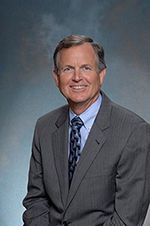 Founding Mobility 21
Founding Mobility 21
Advisory Board Member Retires
Bill Bennett, one of Mobility 21‘s first Advisory Board Members, retired this week after a successful career as a professional engineer and a private sector engineering consultant in Southern California. Since 2004, Bennett has served as Senior Vice President and Southern California Area Manager for HDR, providing vision and leadership for the firm’s Southern California offices.
“Bill has been an invaluable asset to Mobility 21,” said Darren Kettle, Executive Director of the Ventura County Transportation Commission and Mobility 21 Treasurer. “He brings the business perspective to some of the most important transportation issues in Southern California, particularly the need for goods movement investment.”
Join Mobility 21 in thanking Bennett for his tremendous support of the coalition’s mission to improve transportation in Southern California and congratulate him on his retirement.
Metro ExpressLanes is a pilot, one-year demonstration program overseen by Metro, Caltrans and several other mobility partners that have joined forces to develop a package of solutions to improve traffic flow and provide enhanced travel options on the I-10 and I-110 Freeways in Los Angeles County.
ExpressLanes Open on the
I-10 San Bernardino Freeway
Following the successful opening last year of the Metro ExpressLanes demonstration program along the Harbor Freeway, 14 miles of Metro ExpressLanes debuted on the I-10 San Bernardino Freeway Saturday, Feb. 23.
The new ExpressLanes stretch between the I-605 Freeway and Union Station/Alameda Street near downtown Los Angeles. ExpressLanes are High Occupancy Toll (HOT) lanes that allow solo drivers to use the lanes for a toll.
The one-year ExpressLanes demonstration program is designed to reduce congestion by improving travel choices. The first set of lanes opened in November on the I-110 Harbor Freeway between the 91 Freeway and Adams Boulevard.
“By reducing traffic and providing more transit options for commuters, ExpressLanes are cutting air pollution and greenhouse gases throughout the region,” said Los Angeles Mayor Antonio Villaraigosa. “Help us spread the word about the many benefits of Metro ExpressLanes and tell your family, friends and co-workers to purchase their FasTrak transponders today.”
More than 100,000 FasTrak ExpressLanes transponders have been issued since July, 2012. Carpools, vanpools and solo drivers must have a FasTrak transponder to travel in the ExpressLanes.
On the I-10 freeway, an additional ExpressLane has been constructed in each direction between the 605 and the 710 freeways to add capacity along that heavily traveled corridor. Prior to ExpressLanes, there was only one carpool lane operating in each direction along the El Monte Busway.
With the opening of the I-10 ExpressLanes, the rules for carpools on the I-10 freeway will stay the same as they were before. Carpools are three or more people traveling during peak travel times of 5 a.m. to 9 a.m. and 4 p.m. to 7 p.m. Monday to Friday, with holidays excluded. During peak travel times, carpools of just two people can travel in the I-10 San Bernardino Metro ExpressLanes for a toll. All other times, they will travel toll-free in the ExpressLanes. The FasTrak transponder has settings for the driver to designate whether there are one, two or three or more passengers (1, 2 or +) in the vehicle because of the I-10 carpool rules.
At all times on both the I-110 and I-10 freeways, the general purpose lanes are not tolled. But solo drivers will be required to pay a toll any time they use the ExpressLanes. Net toll revenues will be reinvested in the corridor where they are generated for transportation improvements. To prevent backups in the ExpressLanes, the tolls are adjusted from 25 cents a mile to a maximum of $1.40 a mile and will increase as the number of vehicles in the ExpressLanes.
Transportation Events in the Community
March 11-13
LA Chamber: Access Washington, D.C. Advocacy Trip
More info | Register
Wednesday, March 13
ACEC LA: Design-Build Projects, Strategies and Partnerships
More info | Register
Friday, March 15
CMAA: Breakfast of Champions – OCTA & TCA
More info | Register
March 18-19
OCBC and ACC-OC: Sacramento Advocacy Trip
More info | Register
Tuesday, March 19
WTS-LA: Metro’s First 20 Years – Luncheon Featuring Art Leahy
More info | Register
Sunday, March 24
WTS-SD Members Only: Hot Chocolate 15k/5k
More info | Register
Wednesday, March 27
CMAA: Awards Gala
More info | Register
Thursday, March 28
WTS-OC Members Only: Welcome Reception Honoring New OCTA CEO Darrell Johnson
5:30-7:30 p.m.
Center Club, Costa Mesa
Thursday, May 2
World Trade Week Kickoff Breakfast
More info | Register
May 2-3
SCAG: Regional Conference & General Assembly
More info | Register
May 15-17
WTS International Annual Conference
More info
June 24-27
Alternative Clean Technology Expo: Washington, D.C.
More info | Register
Tuesday, Oct. 29
Mobility 21: 2013 Summit at the JW Marriott at L.A. Live

